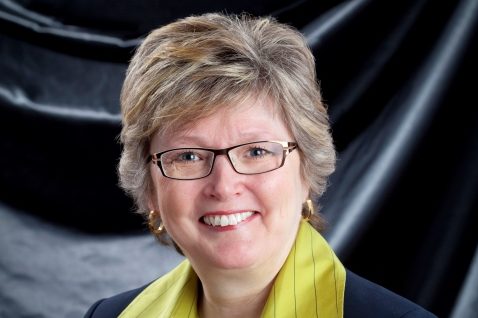By Carol Lambie
Advancing understanding and improving lives is Waypoint’s motto. To do that, we have to be bold, innovative and forward-thinking; and we have to be treating our patients with therapies that are rooted in science.
In health care, including mental health care, it is becoming increasingly important to provide evidence-based services for patients and clients to support achieving the most positive outcome. We can’t keep doing the same thing we’ve always done, or we’ll keep getting the same result.
Waypoint has a rich 40-year history of research, with nearly all of it focused on forensic mental health. In 2011, we began a formal partnership with the University of Toronto, and in 2013 launched the Waypoint Research Institute paving the way to expand the research focus into evidence-based practice and four key themes of risk factors and assessment, treatment and transitions, policy, and knowledge translation.
Evidence-based practice is defined by the Canadian Psychological Association as psychological treatments that involve the conscientious, explicit and judicious use of the best available research evidence to inform each stage of clinical decision-making and service delivery. If you were a patient or a family member of someone in a mental health hospital, wouldn’t you want us to be using the latest research to inform the care you receive?
The Waypoint Research Institute recently refreshed its strategic plan to build on the strengths of the previous plan, increase integration of research excellence with clinical services and improve clinical care. The plan now includes a major focus on strengthening knowledge translation and providing expertise and support to our clinical programs in the identification, implementation, and evaluation of evidence-based practice.
One of the ways we support this is by hosting an annual Waypoint Research Institute conference. The theme of the fourth such conference held in April 2016 was Implementing Evidence Based Practices in Mental Health and Addictions. It was two full days featuring two keynote speakers and nearly 60 concurrent sessions looking at some of the challenges, strategies and successes in this regard.
With research telling us that translating research knowledge into practice typically takes around 17 years, this is a gap we should all be trying to bridge. Our research team has expanded over the years to include knowledge translation, as well as clinician-scientists who spend half their time undertaking research and the other half implementing that research to improve patient and client outcomes.
With this shift in focus for the Waypoint Research Institute, we’ve been able to begin the process of evaluating our clinical programs to ensure we’re using evidence-based therapies.
This work actually began back in 2007 when, under the leadership of Dr. Shari McKee, Waypoint’s concurrent disorders program transformed to include the most current and supported psychological practices for mental illness and substance use.
More recently, our team of researchers evaluated our Acute Assessment program and validated it as a program effective in improving patient outcomes. This process is continuing and we will evaluate all of our clinical programs to ensure the care being delivered is evidence-based.
Helping with this ongoing evaluation is the Waypoint Index of Clinical Improvement. The Index is a set of program outcome indicators developed from the InterRAI-MH data and tailored for each Waypoint clinical program, giving leaders and their teams a better understanding of service effectiveness and helping improve how we understand, monitor and meet patient needs.
Of course, none of this work would have been possible without the expertise and leadership of Dr. Howard Barbaree, our vice-president of Research and Academics. Before joining Waypoint in 2010, Dr. Barbaree, an internationally recognized research psychologist, professor, author and editor, was the former head of the Law and Mental Health Program in the Department of Psychiatry at the University of Toronto and the former clinical director of CAMH’s Law and Mental Health program.
Dr. Barbaree spent the last six years leading the integration of the hospital’s research, education and clinical activities, and identifying new academic partnerships. He also supported the development and recruitment of a research advisory committee and led the implementation of the original Research and Academics strategic plan as well as two subsequent revisions.
Dr. Barbaree recently announced he will retire at the end of December. We wish him all the best and will miss his support for our ongoing focus on research and academics and his contribution to our senior leadership team. He leaves behind a rich and deep legacy and finding his successor will not be an easy task. His accomplishments are many and his commitment to our patients is remarkable.
In this challenging health care landscape, Waypoint is continually trying to improve the interventions so as to provide the best, most responsible care for patients and clients while respecting and valuing staff.
Mark your calendars for our next conference on May 15-17, 2017 at the Holiday Inn in Barrie Ontario where the theme once again will be Implementing Evidence Based Practices in Mental Health and Addictions. Two keynote speakers have already been confirmed and the Call for Abstracts has a deadline of December 20, 2016.
Carol Lambie is President and CEO, Waypoint Centre for Mental Health Care.


